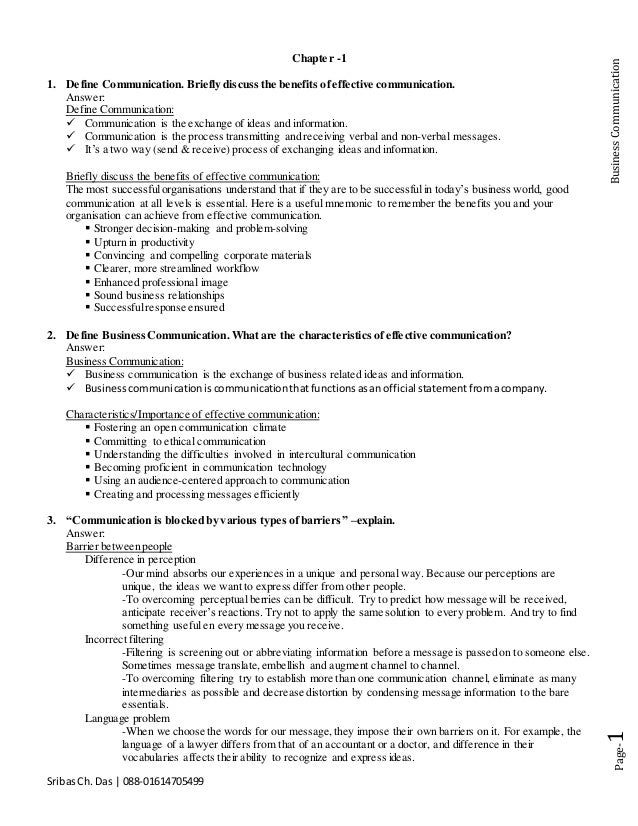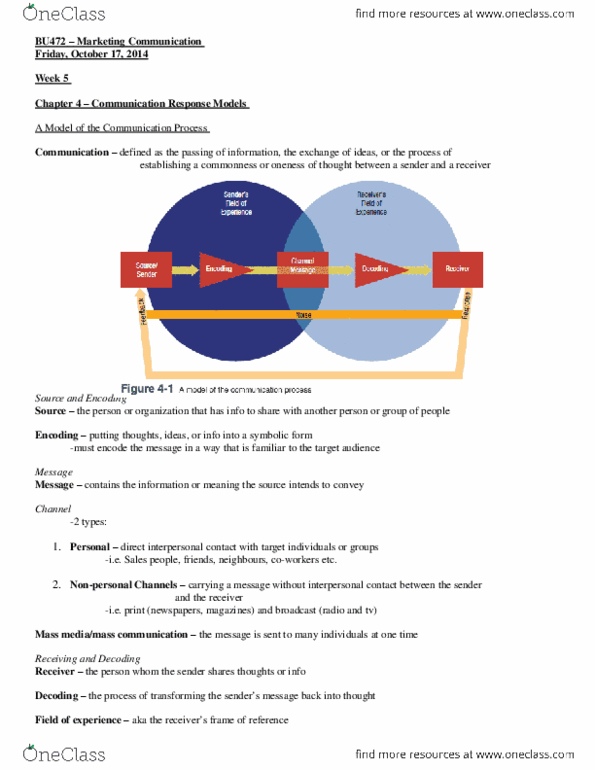- Chapter 4 - The Exchange of Ideas. A religious movement that rejected the Roman Catholic Church and established the start of the Protestant Churches. Political scientist. A person who describes and analyses political processes and institutions.
- CHAPTER 4: The Exchange of Ideas Something to think about Worldview Inquiry: How did the Renaissance spark the growth and exchange of ideas across Europe? What is censorship and freedom of expression? - censorship means that some one else has sat down and decided WHAT I.
Chapter Name Idea

1 The Exchange of Gifts and the Obligation to Reciprocate (Polynesia) 10 2 The Extension of this System Liberality, Honour, Money 24 3 Survivals of these Principles in Ancient Systems of Law and Ancient Economies 60 4 Conclusion 83 NOTES 108 NAME INDEX 192 SUBJECT INDEX 196.

Chapter 4 'The camp looked as though it had suffered an epidemic'
Summary:
The leader of the camp and the head of Eliezer's tent both take a special interest in children and give them extra food. Eliezer explains that children are traded among homosexuals at the camp. When Eliezer arrives at the camp, it seems empty. As usual, the prisoners shower and are given new clothes. Veteran prisoners tell them that Buna is a good camp and that they should try to avoid being placed in the building unit. The head of Eliezer's tent is a fat and predatory-looking German. His assistant tries to get Eliezer's shoes by offering to put him and his father in the same unit, but Eliezer refuses, even after he offers an extra ration of food. The shoes are taken from him anyway. After a medical examination, Eliezer is randomly put in the orchestra block and befriends some musicians, who tell him that he has been placed in a good unit. All he has to do is count bolts and bulbs in an electrical warehouse, and he gets his father transferred to his unit. The only real hazard is Idek, the Kapo, who sometimes flies into violent rages. Eliezer befriends two Czech brothers named Yossi and Tibi. He hums Zionist chants and discusses Palestine with them, and they all plan to leave Europe as soon as they are liberated.
In this chapter Eliezer recounts a number of incidents that stand out in his memory. Each episode is brief, and the narrative is somewhat fragmented. The head of the orchestra block is a Jew named Alphonse who sometimes gives them extra soup. Once Eliezer is summoned to the dentist to have his gold crown removed, but he feigns illness two times and eventually gets to keep it. The dentist's surgery is shut down because the dentist is to be hanged for extorting some of the gold he extracted from patients. Eliezer plans to use his crown to buy bread and describes how his life had become focused around his stomach and food.
One day the Kapo, Idek, flies into a rage and starts beating Eliezer. A French girl who passes as Aryan comforts him in German, and many years later, Eliezer sees her again in Paris. She admits that she actually is Jewish and had false papers at the camp and that the only time she spoke German at the camp was to him.
Another day his father is beaten with an iron bar for working slowly, and Eliezer feels anger directed at his father only, for not knowing how to avoid the abuse. Then, Franek the foreman demands Eliezer's gold crown and begins abusing his father for two weeks when Eliezer refuses to give it to him. Franek torments Eliezer's father daily for marching out of time, and Eliezer tries to help his father practice marching, but his efforts are to no avail. Finally, Eliezer surrenders his gold crown. After first taking away his rations, Franek starts to give Eliezer extra soup. After a fortnight, however, all the Poles (including Franek) are transferred out of the camp.

Chapter 4: The Exchange Of Ideas Economicas
On another day Eliezer walks in on Idek having sex with a girl. Knowing that Idek moved all the prisoners to a different building for this specific reason, Eliezer bursts out laughing. Later, he receives twenty-five strokes of the whip from Idek in front of everyone. Eliezer faints, loses control of his muscles, and is threatened by Idek never to tell anyone what he saw. On a Sunday, the air-raid sirens go off. Everyone was confined inside their blocks, and guards were ordered to shoot prisoners who were outside on sight. In the turmoil of the air raid, two cauldrons of soup are left outside on a path. The prisoners long for the soup but are terrified to leave the barracks. Hundreds of men watch as a single man crawls to the soup, thrusts his head into the liquid, and then dies. The planes begin to bomb the camp, and the prisoners are hopeful that Buna will be destroyed. They regain some hope. After the last bomb, the prisoners remember that they are still in a death camp, but they are cheerful and hopeful about the future.
A week later, the SS officers set up gallows and begin having hanging ceremonies during roll call. The first man to be executed had stolen two plates of soup. Strong and muscular, he is unafraid at his own execution and shouts 'Long live liberty! A curse upon Germany!' right before dying. Although Eliezer is surrounded by death all the time at the concentration camps, he is overwhelmed by this man's solitary execution. Another man Juliek is jaded and just wants it to be dinnertime. After the execution, everyone is forced to march past the condemned man's hanging body and to look into his face. Eliezer remembers the soup being particularly good that night. Eliezer saw many executions, and the victims, having already lost their capacity for emotion, never cried. Only once did the jaded, dried-up prisoners weep at an execution. An Oberkapo and his pipel (a young boy who acted as his assistant) who everyone liked were suspected of blowing up a power plant on camp, but they refused, despite torture, to give any information about it. The little boy, who had the face of a sad angel, was sentenced to be hanged. The prisoner who usually served as executioner refused to perform his task and had to be replaced by an SS officer. When it came time for the execution, the child said nothing, and the whole camp observed in silence. Since the child was so light, he didn't die immediately when he fell, and he remained alive, hanging for half an hour. All the prisoners wept that day, and one man kept asking where God was. That day Eliezer's soup tasted like corpses.

Analysis:
The narrative in this section is very fragmented, with specific events depicted in a brief, episodic manner. Wiesel devotes a few paragraphs or a page to each event, and they are generally unconnected and do not form a linear narrative. In other words, time is broken up in this part of the novel. This narrative technique mimics how Eliezer experienced time during this period of his life. While living in the concentration camp, the days were very regimented, with a rigorous schedule of meals, work, and roll call. The days were more or less all the same, and only the days in which Eliezer experienced extreme brutality or something very unusual stand out at all. Thus, Wiesel's narrative technique recreates his lived experience of random, unconnected events amidst the monotony of everyday camp life.
In this section Eliezer also describes the economy system of the concentration camp. Even though the prisoners have no real material possessions, they still create a barter system amongst themselves. In the absence of money, extra rations of bread or soup become their currency. The SS officers and prisoners in authority positions sometimes participate in the barter system, but they also have the power to entirely circumvent it. For example, an assistant head offers Eliezer extra food in exchange for his food. Even though Eliezer defies the assistant by refusing to give up his shoes, the shoes are taken from him anyway. Similarly, Eliezer is forced to give up his gold crown, although he does eventually receive extra food for it. At the beginning of the section, Eliezer notes how young boys are commodified by some authority figures as sex servants. These boys receive better food than the other prisoners. In the concentration camp, extra food becomes a precious commodity since everyone is constantly preoccupied with their hunger: 'I now took little interest in anything except my daily plate of soup and my crust of stale bread. Bread, soupthese were my life. I was a body. Perhaps less than that even: a starved stomach.' By promising extra food, individuals are able to gain power and obtain favors from other prisoners.
As the prisoners remain longer in the concentration camp, they gradually begin to lose touch with their human emotions. When his father is beaten by an iron bar, Eliezer does not even feel any pity or compassion: 'I kept quiet. In fact I was thinking of how to get farther away so that I would not be hit myself. What is more, any anger I felt at that moment was directed, not against the Kapo, but against my father. I was angry with him, for not knowing how to avoid Idek's outbreak.' Along with the other prisoners, Eliezer is becoming concerned only with his own survival. In trying to remain alive, the prisoners cease to care about others and want only to eat and avoid being beaten. When the prisoners witness the first hanging execution, Juliek whispers, 'Do you think this ceremony'll be over soon? I'm hungry' This progression towards emotional numbness and fierce self-centeredness is a kind of reverse character development: the prisoners do not grow and mature, but instead regress into a perverse kind of childlike, emotionally void state. Occasionally, however, there are still rare displays of human emotion, such as when the French woman comforts Eliezer and when the prisoners weep at the hanging of the child prisoner.
The spectacle of the dying man crawling to reach the two cauldrons of soup is perhaps one of the most haunting images of the entire novel. It emphasizes how stripped of personality the prisoners were and how obsessively fixated they were on food and simple survival. Treated barbarously by the Nazis and severely undernourished, the prisoners have become hungry animals intent only on acquiring more food. For the dying man, reaching the cauldrons of soup represents a supreme accomplishment, and he musters up all of his energy just to reach his goal. It is tragic and very disturbing that the Nazis succeeded in reducing human beings to that base level of existence.
The hanging of the young boy greatly affects all inhabitants of the concentration camps. It arouses feelings of pity and sorrow that are a rarity in the jaded atmosphere of the death camp. The Nazis intend the public hangings to be an unspoken threat to the prisoners to keep them in line. However, they seem to cross the line when they hang the child. Even though they kill thousands in the crematory on a daily basis, the hanging of the child becomes an act of unspeakable and horrid cruelty. The prisoners all weep, and Eliezer feels like the Nazis have succeeded in killing God himself: 'Behind me, I heard the same man asking: Where is God now?' And I heard a voice within me answer him: Where is He? Here He isHe is hanging here on this gallows.' In killing the child, the Nazis come dangerously close to destroying Eliezer's faith in God. Wiesel writes, 'That night the soup tasted of corpses.' After witnessing the execution, Eliezer feels like death is everywhere, and he is unable to enjoy his soup because all goodness has been destroyed.